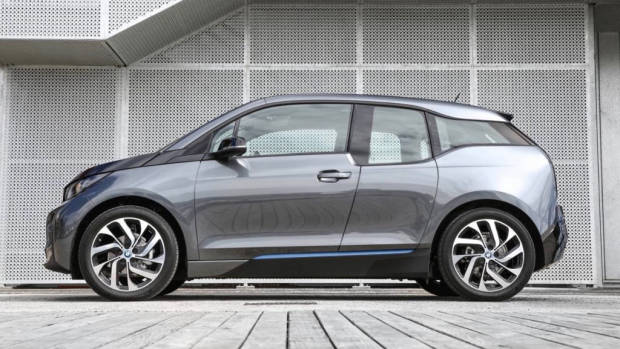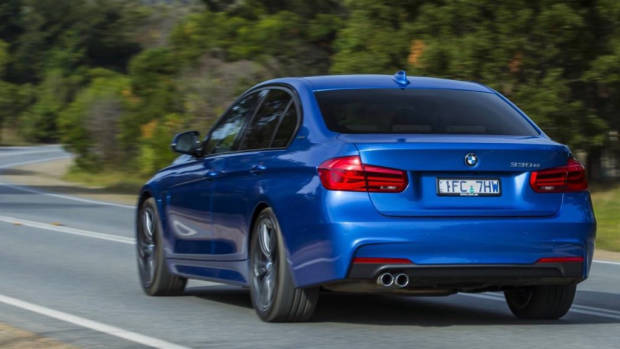-
Car Reviews
- All reviews
- Midsize SUVs
- Small cars
- Utes
- Small SUVs
- Large SUVs
- Large cars
- Sports SUVs
- Sports cars
- Vans
Latest reviews
- Car News
-
Car Comparisons
Latest comparisons
- Chasing Deals
BMW Group Australia chief executive officer Marc Werner has issued a direct call to Australian Prime Minister Malcolm Turnbull: “the time for talking” about action on low-emissions vehicles is “over”.
Speaking to assembled Australian automotive media last week outside Melbourne, Werner ruminated on the need to “break the embarrassing silence” from Canberra on electric cars and other low-emissions solutions.
When pressed further by Chasing Cars on what the Commonwealth ought to do in this space, Werner identified two policy thrusts that have received too little federal attention: financial buying incentives for low-emissions vehicles, and construction of necessary electric vehicle infrastructure.
In addition, Werner believes that abolishing the Luxury Car Tax of 33% on premium vehicles is an important further step in developing a “more intelligent way” of taxing vehicles.
The provision of tax breaks, cash-back discounts or other financial incentives for low-emission vehicles would be relatively simple to achieve. Werner identified two examples for analysis by the Commonwealth, citing successful implementations in Norway – and, closer to home, in New Zealand.
However, Werner was keen to identify to Chasing Cars that many international examples have not gone far enough, and that the Turnbull government would benefit from studying ‘innovative forms’ of incentivising low-emissions vehicles.

BMW’s i3 urban electric vehicle
New Zealand’s National government – the conservative party – announced a range of aggressive measures last year to encourage buyers to purchase an electric vehicle.
These measures include an official target for two per cent of vehicles on New Zealand roads to be electric by 2021. This target applies to both light vehicles, and heavy commercial vehicles.
To reach that target, both light and heavy electric vehicles are exempted from New Zealand road user charges – a road tax paid by Kiwi motorists.
In addition, the New Zealand Government is investing NZ$1 million per year on EV awareness campaigns and up to NZ$6 million per year in low-emission vehicle innovation grants.
Future New Zealand plans include allowing electric vehicles in bus and high-occupancy lanes.
BMW’s Werner issued his call for Turnbull to ‘finally action a robust policy to support the introduction of low-emissions vehicles to the Australian market’. Citing the overseas examples, Werner said to agreement that ‘we all know it’s possible’, noting that there has been a ‘real difference’ in the sales of BMW’s low-emissions vehicles in New Zealand since the implementation of incentives.

BMW’s 330e petrol-electric hybrid sedan
The second policy strand – the construction of necessary infrastructure – represents the costlier element of Werner’s pitch. In the United States, for example, private firms are footing the vast majority of the bill for EV infrastructure development, with Tesla’s Supercharger network the prime example. This technology is based on a user-pays revenue model.
The roll-out of BMW’s ‘i’ sub-brand of electric and low-emissions vehicles means any incentive structure would benefit buyers of Munich’s most economical models.
Werner emphasised the expanding breadth of BMW’s ‘i’ offering, noting that it is not limited to the well-known i8 super-coupe and i3 runabout, but that hybrid-electric versions of the 3 Series, 7 Series and X5 are available now, with a 5 Series offering on the near-horizon.
The tone of the call was hopeful but with a sense of growing impatience, Werner concluded that ‘the time has certainly come … we continue to live in hope that 2017 will be the year we see some progress from the government’.
Chasing Cars editor Tom Baker spoke with Marc Werner in Mount Macedon, Victoria.
Latest news
About Chasing cars
Chasing Cars reviews are 100% independent.
Because we are powered by Budget Direct Insurance, we don’t receive advertising or sales revenue from car manufacturers.
We’re truly independent – giving you Australia’s best car reviews.